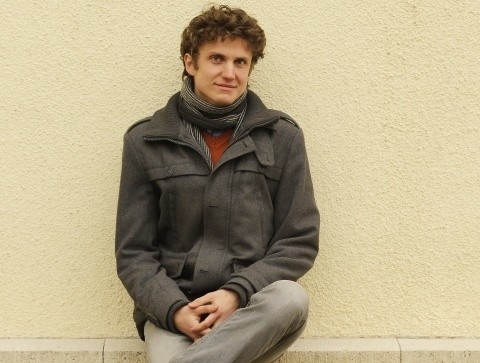Hungarian pianist displays revelatory artistry in SoFla debut
The newly reconfigured Colony Theater in Miami Beach made a fine showcase for the South Florida debut of Hungarian pianist Zoltan Fejérvári for the Miami International Piano Festival’s Discovery Series on Sunday night.
With three rows of seats removed and new seating on the side, the audience now enters by walking up onto the stage and down a small ramp into the hall’s main seating area. The stage has been extended and thrust forward, resulting in a more intimate performing space. On first hearing, the acoustic seemed improved with keyboard resonance clearer and more immediate.
Fejérvári, who counts pianist András Schiff among his mentors, proved the kind of true “discovery” this series was meant to display. The young pianist and chamber music instructor at Budapest’s Liszt Academy of Music evidenced dazzling technique that can rank with the best piano virtuosi and his interpretive instincts were consistently revelatory. He imbued even the most overt display pieces with subtlety and aristocratic insight.
In Bach’s English Suite in G minor, Fejérvári managed to emulate harpsichord-like registrations on a modern Steinway. The opening Prelude was lithe and Fejérvári brought out the inner voices of the austere Allemande. There was transparent precision in the rapid figurations of the Courante. The Sarabande, the score’s heart, is one of Bach’s most soulful instrumental creations. The pianist’s subtle detailing of variegated dynamics was infused with a touch of poetry. Fejérvári’s wonderfully quirky hesitations and angular phrasings gave distinctive personality to the two gavottes. Fugal lines in the concluding Gigue emerged with clarity at an unusually brisk clip.
Fejérvári turned full-blooded romantic for Schumann’s Sonata in G minor. In the first movement, huge contrasts of tempo and volume held sway. Schumann instructs the pianist to play “still faster” in the coda and Fejérvári captured the devilish fantasy of those closing pages.
The calm and serene Andantino has its genesis in Schumann’s vocal lieder. Here Fejérvári achieved a quiet and contemplative aura by unusually judicious utilization of the piano’s soft pedal. He realized both the fierce and playful qualities of the Scherzo, more a Paganini-like caprice for the keyboard. There was fine coloration in a fleet reading of the Rondo-Presto with Schumann’s split musical personality projected richly.
Fejérári turned to bravura showpieces for the program’s second half. The percussive power and deliberate pauses of the opening chords in Chopin’s Scherzo No. 1 in B minor seemed almost shocking and the fluid, high-voltage reading was definitely not the Chopin of prettified salon vignettes. If Fejérvári’s Chopin was Lisztian, he infused Liszt’s Ballade No. 2 in B minor with a song-like romance. The opening rumblings in the left hand, as if from the lower depths, were given space and the big-boned volleys were powerful indeed.
The tritone opening of Liszt’s Après un lecture de Dante (Dante Sonata) was revolutionary in its day. Fejérvári managed to restore the adventure and modernity to the score. He gave full vent to the music’s virtuosic qualities while bringing dramatic coherence and surprising moments of contrasting beauty and even elegance amid the bombastic thunder.
Responding to repeated bravos and cheers, Fejérvári told the audience that he was not used to playing for such enthusiastic listeners. His encore of Schubert’s Impromptu in G flat Major was almost operatic in singing line and softly tinted glow. This is a pianist who needs to be heard more frequently in American concert halls.
The Miami International Piano Festival Discovery series continues with Andrew Tyson playing music of Scarlatti, Ravel, Albeniz and Liszt 7:45 p.m. May 12 at the Colony Theater in Miami Beach. miamipianofest.com
Posted in Performances
One Response to “Hungarian pianist displays revelatory artistry in SoFla debut”
Leave a Comment
Mon Mar 19, 2018
at 3:18 pm
1 Comment

Posted Mar 20, 2018 at 10:56 am by F.E. Cooper
Excellent account of this young man’s musical prowess. Reflective of the manner with which each piece on the program was presented.